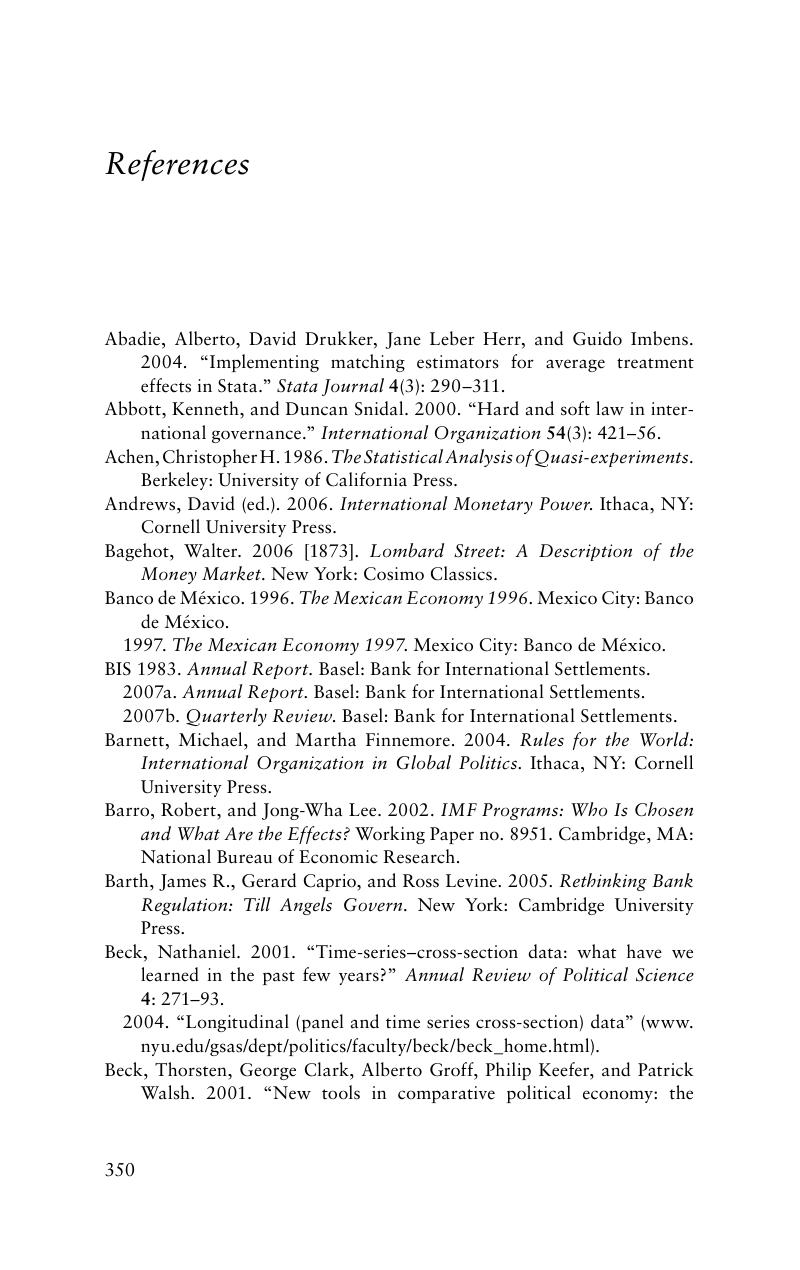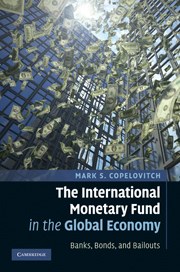Book contents
- Frontmatter
- Contents
- List of figures
- List of tables
- Preface
- 1 The International Monetary Fund in the global economy
- 2 Global finance and the politics of IMF lending: theory
- 3 Global finance and the politics of IMF lending: evidence
- 4 Global finance and IMF lending to Mexico, 1983–1995
- 5 Global finance and IMF lending to South Korea, 1983–1997
- 6 Conclusions
- Appendices
- References
- Index
- References
References
Published online by Cambridge University Press: 06 July 2010
- Frontmatter
- Contents
- List of figures
- List of tables
- Preface
- 1 The International Monetary Fund in the global economy
- 2 Global finance and the politics of IMF lending: theory
- 3 Global finance and the politics of IMF lending: evidence
- 4 Global finance and IMF lending to Mexico, 1983–1995
- 5 Global finance and IMF lending to South Korea, 1983–1997
- 6 Conclusions
- Appendices
- References
- Index
- References
Summary

- Type
- Chapter
- Information
- The International Monetary Fund in the Global EconomyBanks, Bonds, and Bailouts, pp. 350 - 362Publisher: Cambridge University PressPrint publication year: 2010



